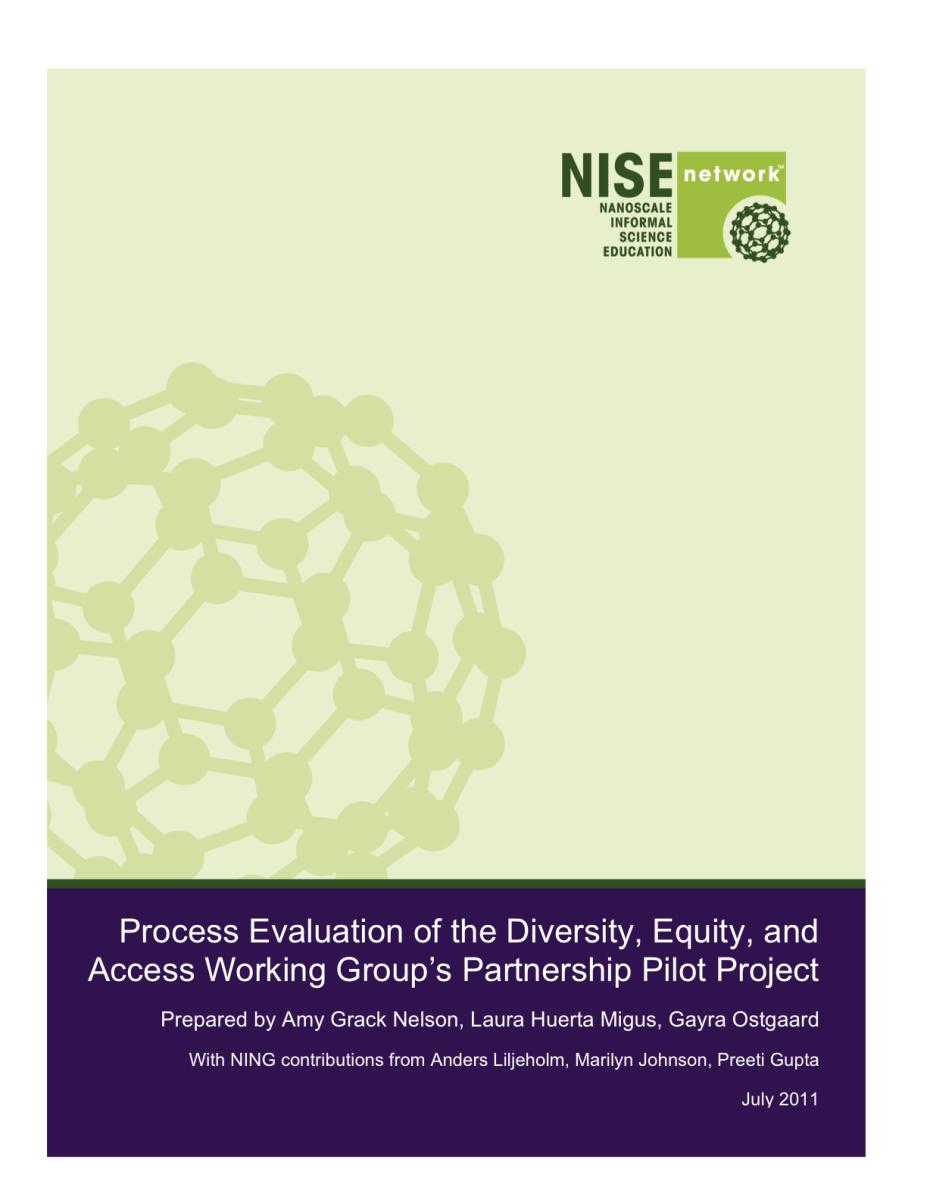DESCRIPTION
In 2010, the NISE Network’s Diversity, Equity, and Access working group undertook a partnership pilot project to identify strategies for engaging youth from underrepresented backgrounds in nanoscale informal science learning experiences. To carry out the project, three museums developed partnerships to deliver programming at Boys & Girls Clubs in their communities. This report provides case studies of how the partnerships developed over time and provides lessons learned to help guide informal educators working with Boys & Girls Clubs or similar afterschool programs.
DESCRIPTION
In 2010, the NISE Network’s Diversity, Equity, and Access working group undertook a partnership pilot project to identify strategies for engaging youth from underrepresented backgrounds in nanoscale informal science learning experiences. To carry out the project, three museums developed partnerships to deliver programming at Boys & Girls Clubs in their communities. This report provides case studies of how the partnerships developed over time and provides lessons learned to help guide informal educators working with Boys & Girls Clubs or similar afterschool programs.
OBJECTIVES
NANO CONTENT MAP
Nanometer-sized things are very small, and often behave differently than larger things do.
Scientists and engineers have formed the interdisciplinary field of nanotechnology by investigating properties and manipulating matter at the nanoscale.
Nanoscience, nanotechnology, and nanoengineering lead to new knowledge and innovations that weren't possible before.
Nanotechnologies—and their costs, utility, risks, and benefits—are closely interconnected with society and with our values.
Credits
Science Museum Boston
Developed for the NISE Network with funding from the National Science Foundation under Award Numbers 0532536 and 0940143. Any opinions, findings, and conclusions or recommendations expressed in this product are those of the authors and do not necessarily reflect the views of the Foundation.
Creative Commons Attribution Non-Commercial Share Alike 3.0 United States (CC BY-NC-SA 3.0 US).
View more details

NISE Network products are developed through an iterative collaborative process that includes scientific review, peer review, and visitor evaluation in accordance with an inclusive audiences approach. Products are designed to be easily edited and adapted for different audiences under a Creative Commons Attribution Non-Commercial Share Alike license. To learn more, visit our Development Process page.

